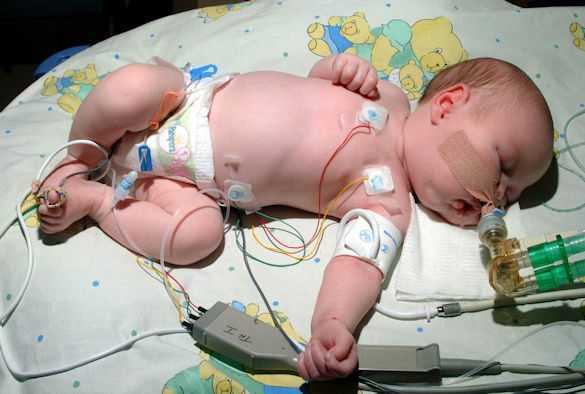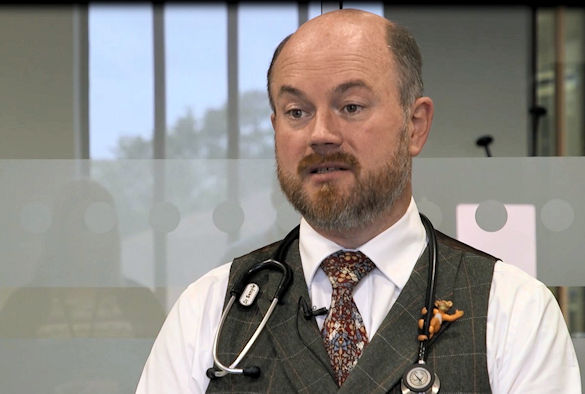
Vented baby with Bronchiolitis
A pioneering research project led by the University of Liverpool and Alder Hey Children’s Hospital has been awarded over £1.6m by the National Institute for Health Research (NIHR) Efficacy and Mechanism Evaluation Programme (EME) to test a new treatment for babies with bronchiolitis.
Bronchiolitis is a winter viral disease that causes breathing problems and feeding difficulties in babies. In severe cases, breathing fails and these babies need Intensive Care where their breathing is supported by a mechanical ventilator. One thousand infants with bronchiolitis are admitted to Paediatric Intensive Care Units in England each year. There is currently no vaccine or specific treatment for bronchiolitis.
Surfactant is naturally produced in our lungs to help ease the work of breathing. Infants suffering from bronchiolitis have less surfactant, which makes breathing much harder. The Bronchiolitis Endotracheal Surfactant Study (BESS) will test if treating babies with surfactant will reduce the time they depend on a mechanical ventilator.
A leading cause of baby death
BESS is an investigator-led collaboration between the Universities of Liverpool, Southampton and Leeds. BESS is led by Calum Semple, Professor of Child Health and Outbreak Medicine at the University of Liverpool and Consultant in Paediatric Respiratory Medicine at Alder Hey Children’s Hospital. BESS is supported by the University of Liverpool Clinical Trials Research Centre. The study is expected to run in 14 hospitals in England, Ireland and Scotland over three winters.

Professor Semple, said: “There is a pressing need to develop treatments for this nasty disease which affects so many babies each year. Bronchiolitis is the commonest single cause of hospital admission for babies in the UK and now a leading cause of death in babies worldwide.
“It is vital to increase our understanding of how surfactant can help babies with breathing problems to enable us to develop effective treatment strategies for the future.
“We are extremely grateful to NIHR for their support. This major grant could enable our team to make a significant contribution to the future health of our youngest and most venerable children.”
BESS is funded by the Efficacy and Mechanism Evaluation programme, a Medical Research Council and NIHR partnership with contributions from the Chief Scientist Office (CSO) in Scotland, Health and Care Research Wales, and the Health and Social Care Research & Development (HSC R&D) Division, Public Health Agency in Northern Ireland.
Find out more about Bronchiolitis in the video below: